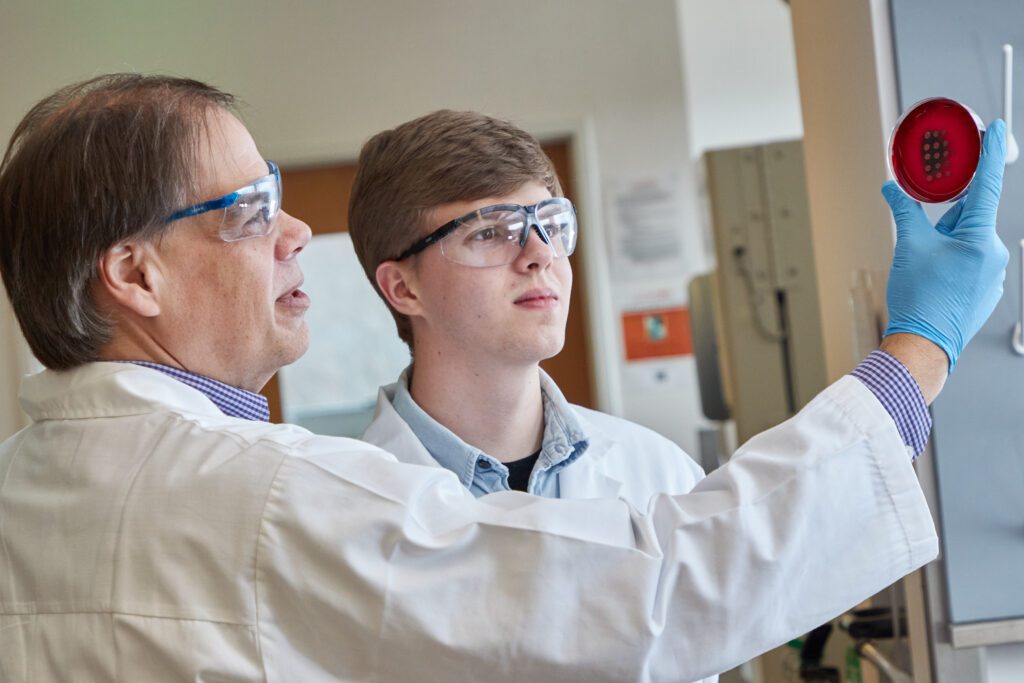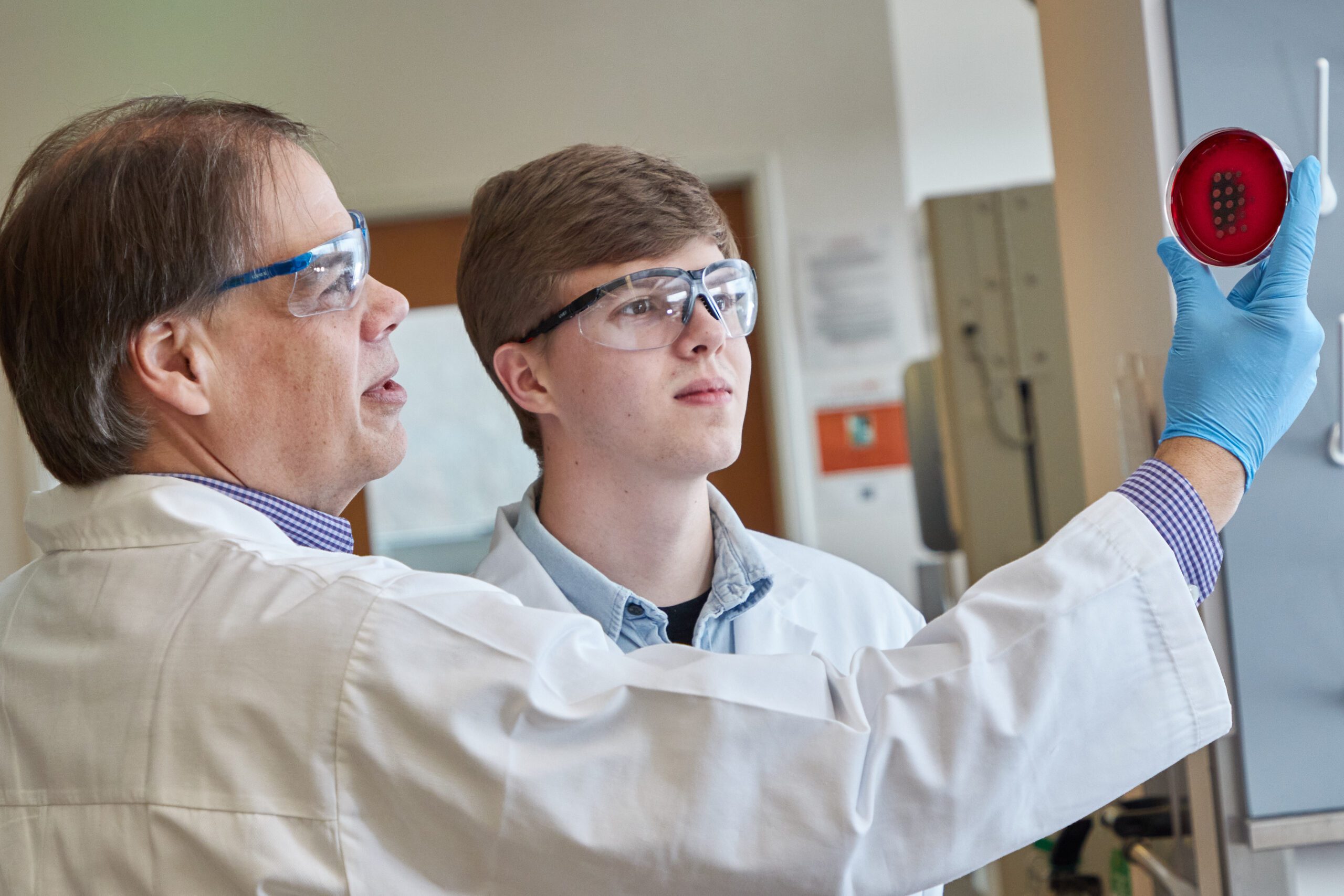Kerry Smith, director of the Eukaryotic Pathogens Innovations Center (EPIC), has taken a role with the Clemson University School of Health Research (CUSHR) as campus research director for the Prisma Health Education and Research Institute (PHERI).
“In this role, I am able to extend my efforts beyond my own laboratory’s research and assist in advancing impactful health-related research in diverse scientific and clinical fields,” said Smith, also a professor of Genetics and Biochemistry.
PHERI is a collaboration between Prisma Health, Clemson, Furman University and University of South Carolina. Located on the Greenville Memorial Medical campus, the center seeks to bridge the gap between academics, research, clinical practice and healthcare transformation in a way that is innovative, inter-institutional, inter-professional and interdisciplinary.
In this role, Smith will work to build and enhance research collaboration between Clemson researchers and clinical faculty from Prisma Health-Upstate.

“The increased collaboration will be advantageous for both Clemson researchers and the clinical faculty, as it will enable the Clemson researchers to conduct health-related research in an applied environment that will have a positive impact on individuals,” Smith said. “This will enable the clinical faculty member to offer scientific assistance for innovative interventions that could potentially be implemented outside of Prisma Health–Upstate.”
Smith expects these collaborations to continue to generate presentations at conferences for academic researchers and for physicians and healthcare professionals, publications in peer-reviewed journals, and external funding.
Smith comes to this role after being involved with Clemson University School of Health Research for several years. He has been at Clemson for more than 23 years and served as director of EPIC for more than 12. He has led a National Institutes of Health training grant collaboration between EPIC and the University of South Carolina School of Medicine Greenville. This summer program provides research traineeships to outstanding medical students to utilize state-of-the-art molecular, cellular, biochemical, genetics and genomic approaches to developing or improving therapeutic approaches for the eukaryotic pathogens, and to participate in workshops on molecular diagnostic instrumentation and techniques and the responsible conduct of research.
Through his role as the director of EPIC, Smith can transform the world of healthcare by being at the forefront of research in eukaryotic pathogens. His research centers around pathogenic fungi. Invasive fungal infections cause nearly 1.5 million deaths annually, accounting for nearly 50 percent of all AIDS-related deaths. Cryptococcus neoformans is the most frequent cause of fungal meningitis and is responsible for nearly half of the invasive fungal infections. Smith is working to identify and characterize proteins/enzymes necessary for acetate utilization as that may facilitate identification of suitable targets for new antifungal therapies.

Prior to joining Clemson in 2001, Smith graduated from the Georgia Institute of Technology and got his Doctor of Philosophy degree in molecular biology from the University of Pennsylvania School of Medicine. He has received a Clemson University Research, Scholarship, and Artistic Achievement Award, the 2015 National Scholars Program Awards of Distinction and the 2012 Douglas W. Bradbury Award.
Clemson Associate Vice President for Health Research Windsor Sherrill said these experiences will help Smith in his new role.
“Kerry has shown his commitment to our vision of expanding health research at Clemson,” Sherrill said. “We look forward to his success in his new role as Clemson University Campus Research Director for Prisma to enhance our research partnerships and Clemson’s health research mission.”
Smith succeeds health research director and psychology professor Thomas Britt, who is stepping down to spend more time on his own research on the determinants of resilience among employees in high-risk occupations, including emergency medicine clinicians, military personnel and first responders.
“Dr. Britt has been a key leader in the Clemson/Prisma relationship,” Sherrill said. “Through research advocacy and innovation, Tom has laid an incredible foundation. We are indebted to him for our growth in collaborative health research.”
Under Britt’s leadership, collaborative research with Prisma has increased across colleges. Britt said this has been a key contributor to the growth in health research at Clemson in recent years.
“I am appreciative to the leadership of CUSHR and Prisma Health, which has supported the efforts of multiple Clemson faculty to become engaged in collaborative healthcare research,” Britt said.
Britt said that Smith’s extensive health research experience will help him succeed in this new role and continue developing collaborative research with Prisma Health providers across all of Clemson’s colleges. “Kerry has demonstrated a great ability to conduct collaborative research with the USC School of Medicine-Greenville and Prisma Health partners and has had tremendous success in obtaining grants to help fund these collaborations,” Britt said. “He is ideally positioned to work closely with Dr. Sherill, the Associate Deans for Research at Clemson, and the Academic Vice Chairs at Prisma Health to further increase collaborative health research between Prisma Health and Clemson.”
Smith began his role in October.






